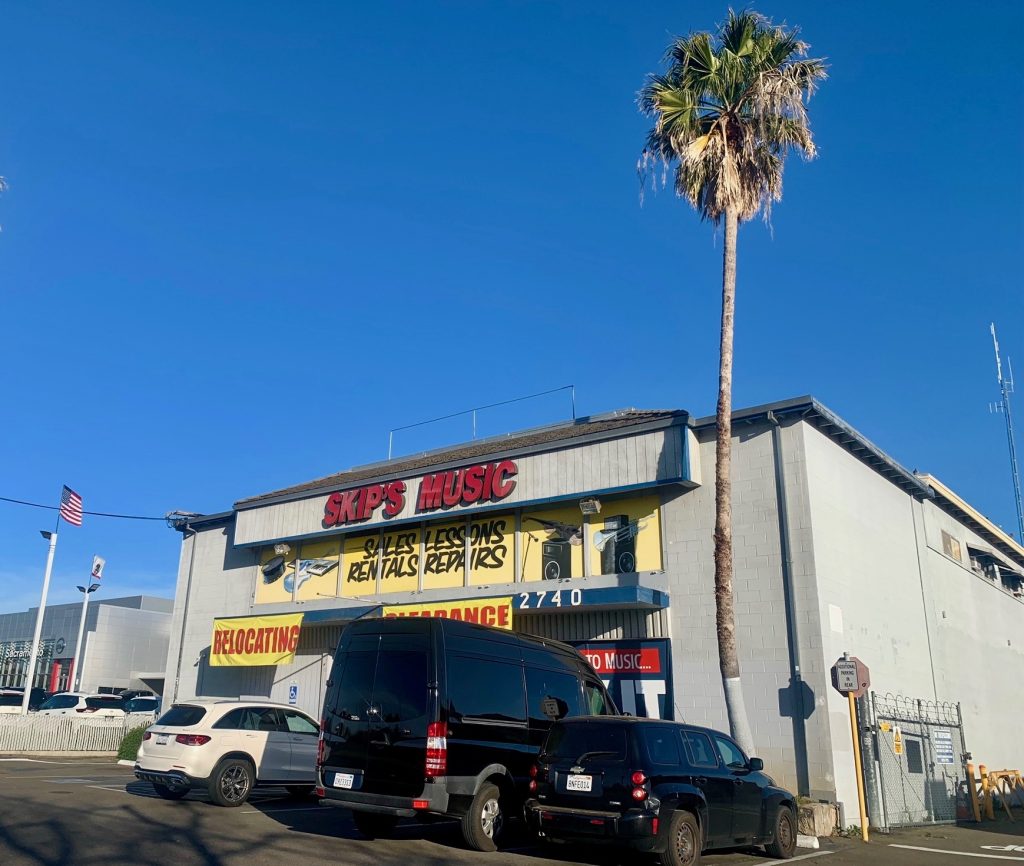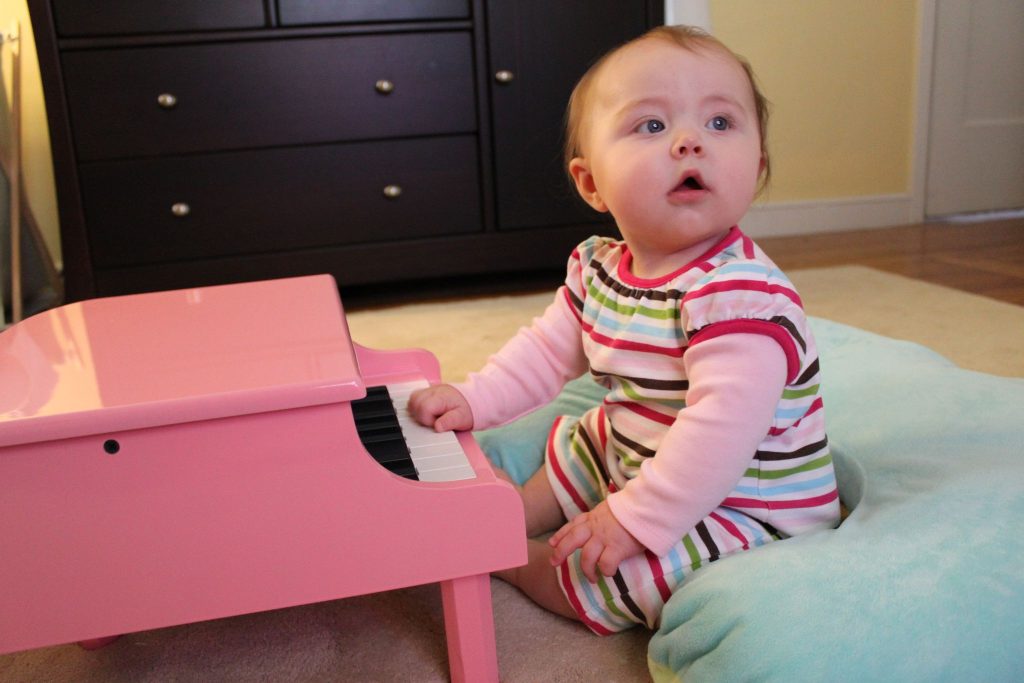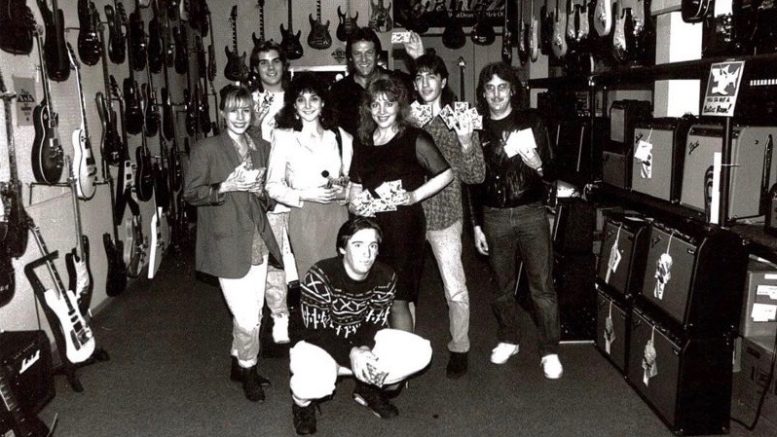From Stairway to Stardom and Weekend Warriors, to the emergence of Quarry Park, Skip’s impact left ripples throughout the region
By Casey Rafter
The otherwise somber room filled with music that came without direction as Stuart Walthall’s strumming fingers comforted the three saddened hearts — including his own.
An hour after Walthall left the room, he learned that his longtime boss and friend, Skip Maggiora – the founder and CEO of Skip’s Music – died from a lengthy battle with kidney disease. Walthall had been with Skip’s son, Creed, and his partner, Melanie Reibin: They were the last three to see him. They were also the first three to mourn the loss of a man that touched the lives of many.
After 50 years in Sacramento, what Skip’s Music created is undeniable. When Skip upgraded his storefront from a small space that he’d originally opened in 1973 to the current location on Auburn Boulevard in 1979, he began to snipe out local talent to fill it with knowledgeable salespeople, a sturdy management team, and teachers who could engage with local musicians on a variety of instruments. There hadn’t been a hub like this before in Sacramento.
Walthall, who taught guitar and piano at Skip’s for 43 years, came to the job as part of that wave of talent, which included former manager Mary Willett and current CEO of the National Association of Music Merchants, Joe Lemond.
“He reached out to a number of employees and teachers at other music stores in Sacramento and gathered together, really, the best musicians in Sacramento in one spot,” Walthall recalled.
Skip made individual instrument lessons available at his store and, as if hoping to train generations of future customers, began Stairway to Stardom in 1982. For 41 years, that program has allowed young, non-professional musicians an opportunity to join a band of their peers coached by professional mentors. The end of each summer program culminates in a battle of the bands.
Walthall, who used to co-direct Stairway to Stardom, said the program continues to impact the lives of budding local musicians with competitions between 10-25 bands every summer.
“Our first concert was actually out in the parking lot in front of the store with just four or five groups,” he said. “That program, especially in the beginning, continually, yearly, won the best education program in the United States from NAMM until they retired that award.”
Larisa Bryski, cofounder of Girls Rock Sacramento, said that when she arrived in the Capital City in 1988 to study voice at college, she “wanted to be in the scene.” Answering an ad in Skip’s Music’s Valley Music News, Bryski connected with a band whose drummer was a mentor for Stairway to Stardom.
“That was the only way that you can really connect with other musicians in Sacramento and get your foot in the door, anywhere, is if you were somehow affiliated with Skip’s Music,” Bryski remembered. “That was my goal, right out of the gate, was to try to find a way to be part of that culture.”
Bryski’s first interaction with Skip was in 1991 when she began mentoring for Stairway to Stardom. She initially found it difficult convincing the owner that she was serious and qualified, given she’d been in bands since high school. She had to specify to Skip that she didn’t want to join the program as a performer, but as a coach — something she said young women weren’t often doing at the time.
“I’m 20-years-old, I walk in and I’m like, ‘I want to coach your band,’” Bryski recounted of her confidence. “I think, at the time, I was the youngest female coach ever. He just didn’t believe me, initially. I had enough experience to do it, and I convinced him.”
The band Bryski mentored her first year won the competition. That success led to additional responsibilities for the young coach. Eventually, in 2005, Bryski got even more involved.
“I just kind of built a little bit of a rapport with [Skip],” she said. “My relationship with him really solidified when I took over for Tommy Armstrong Levitt as director of the Stairway program.”

In 1993, Skip and head mentor Tony Galioto began the Weekend Warrior program. Similar to Stairway to Stardom, the Weekend Warriors ranged ages from young to old — usually folks with a day job who felt an itch to dust off instruments they might otherwise ignore in storage.
“Skip initiated the Weekend Warrior program; we’ve had guitar ensemble clinics, guest artists” Walthall said. “Even though he’s a monster as far as retail and rent, lease, repair — you know, to me, Skip has always emphasized education. He himself was a guitar teacher in the beginning out at his little store.”
During her tenure at Skip’s Music, an era beginning in 1991 and ending in 2016 when she founded Girls Rock Sacramento, Bryski worked in the finance office, as a receptionist at the front desk and began teaching voice in 1999. She also helped recruit music instructors for the Elk Grove location of Skip’s Music in 2005.
That location closed April 1 in preparation for more-recent relocation plans.
“The skills that I learned through running the stairway program — there’s no way I would have even thought to start Girl’s Rock Sacramento,” Bryski acknowledged. “I told Skip that. He knows that, and he came to our grand opening … He was very supportive when it came down to it.”
Like Skip, Sacramento siren Dana Moret has her fingers in all the musical pies: She’s a blues singer who spent a decade managing the online presence for Torch Club and, when she worked for the City of Rocklin consulting on Quarry Park in 2016, Skip and his crew were brought on to produce shows and run sound for the venue.
“That community [in Placer County] is very close knit, and integrity and reliability and friendship goes a long way,” Moret observed. “It was natural: Skip cared about the venue, he knew how to make it better, he saw the vision of the city council to make it a destination spot and he worked with us for the first four years to make every show better.”
Moret explained that, with Skip’s guidance – as well as the work done by pro audio manager Tony Mason over some 40-45 shows – she learned the ins-and-outs of producing shows, booking and contract negotiations while they worked together.
“And what a person to learn from: the person in town that had been doing it for years,” Moret said of Skip. “How to negotiate tech riders — everything down to how to roll a cord. It was like a college education.”
After four years of running Quarry Park as a city-funded venue, popularity grew enough that it could be handled by an outside entity — something Moret says wouldn’t have happened as seamlessly without Skip’s connection to the venue.
Moret, who’s been playing music since 19, added that her feelings for Skip could easily be lost in a sea of gratitude pouring out from the local community, but she treasures the fact that she gained very valuable life and production skills from him.
The influence that Skip had over the music scene not only in Sacramento but throughout the Central Valley is obvious, Bryski pointed out. The history of Skip’s Music is dotted with stores in Modesto, Elk Grove and Sacramento. She noted that if you were a young musician in the area, Skip’s was where you found a sense of community.
In a Facebook post following Skip’s death, Bryski said her entire adulthood had been influenced by that one man. Skip’s support was always clear to her. When Bryski married then-pro audio manager Willie Seltzer and eventually had a daughter, Skip sent a toddler-sized pink piano as a gift.

“It’s true, it’s true; there isn’t anybody in my life who I love right now who I didn’t somehow meet by way of Skips Music,” Bryski acknowledged. “He just created this incredible culture of music and community and I mean, everything from the newspaper to the summer education programs to the teaching department to the workshops to the music and sound expo that they do every year to the American Alliance of Music Merchants … the legacy is amazing and I, as a musician living in Sacramento, could not be successful the way I wanted to be successful without somehow being part of that.”
What Skip left behind continues. His store is in the process of relocating to a 31,000-square-foot location on Madison Avenue, according to its vice president Mike Snyder. In addition to equipment and instrument rental, lessons and repairs, the new location will eventually hold a museum of Skip’s collection of rare instruments.
For Walthall, it was an honor to provide musical solace to Skip’s loved ones near the end of his life. While he was there, a bustle of nurses, doctors and hospice workers traveled in and out of the room, but the music endured.
“He elevated the level of music education in this town, there’s no doubt about that,” Walthall stressed. “You know, when the writing was on the wall, I just played, because so much of my relationship has been me and my guitar and Skip.”


Back almost 50 years ago, circumstances dictated that I no longer wanted to play the guitar, I *needed* to play. First, I needed a guitar, nach. Saw a Yamaha that a schoolmate was playing, decided on that model- it was affordable.
The problem lay in the fact that the parental units were opposed to funding any new pasttime of mine that didn’t cost over $10. $12, maybe- all the money that went out for short-lived hobbies like Judo ($100 including gi and lessons- 6 months) Scouting (a few hundred for dues and uniforms- 4 months) to name just 2. And the guitar, as it happened, was about $75. Dammit. I asked anyway- shot down like Gary Powers. Faster, probably. Asked again, same result.
In desperation, I figured that if I could (creatively) get the price lower, they might cave. Out of amusement, if nothing else.
Sacramento had many, many more music stores back then: Andy Penn’s Drum & Guitar City on Folsom Blvd, Northridge on (I think) Madison, Jack’s House of Music on El Camino, Bob’s Music on 65th Street Expressway, Kline’s on Sutterville, one on Stockton (whose name escapes me) and Skip’s … I’m sure that there were more. I called all of them with some version of the following: “Andy Penn’s store says they’ll sell me this guitar for $75- can you beat it?” and if yes, he’d sell it for $72.50 then I’d call Northridge: Any Penn will sell me this guitar for $72.50. Can you beat it? Northridge would say $70 even, I’d call Jack’s with Northridge’s a little lower price, then Bob’s with Jack’s price, then Skip with Bob’s price. Then went around again until Andy Penn’s quoted $59. I called Skip, who laughed.
“Buddy, it Andy can sell it for that price, buy the thing. Come on back if you need a serious guitar…”, still chuckling as he hung up.
I got it for Christmas that year- they were either amused, or respected the effort (and ingenuity) to get the price down. Got strings (*many sets of strings*) from Skip, songbooks from Northridge… I never stopped practicing. Still haven’t.
Fast forward about 5 years. I still had the Yamaha, had a 12 string that I’d borrowed from my brother, and a need for something that stayed in tune (vain hope with a 12, but I didn’t know that yet). I went to Skip (Mr. Maggiora, to me) reminded him of the conversation -which he remembered, and laughed again. I was in an Army uniform, and he gave me a discount on a Guild 12 string. I think he may have knocked off a little for the Army green, but it was the most money I’d ever spent on anything. He seemed to know this.
I have a few 12 string guitars (one of which I need to go restring, actually), and always stop by Skip’s to get them. And will.
Mr. Maggiora, thanks so much for the neat place to shop, great people whose brains were available to pick, and the most awesome place to go into. Come to think of it, I need to restring a Martin…
I started teaching voice at Skip’s in 1989. Or 90!?? We were a tight knit bunch. Stairway was an exciting program that helped “birth” many newcomers to the Sac music scene! I used to write a column every month for Skip’s news about vocal technique for rock’n roll. We used to have staff parties. I seem to recall a whitewater rafting and picnic event at Coloma! I came back to teach after several decades’ absence to find the staff pretty much changed but the vibe and camaraderie intact!!! David Crosby nailed in his song, Music Is Love. Godspeed, dear Skip!